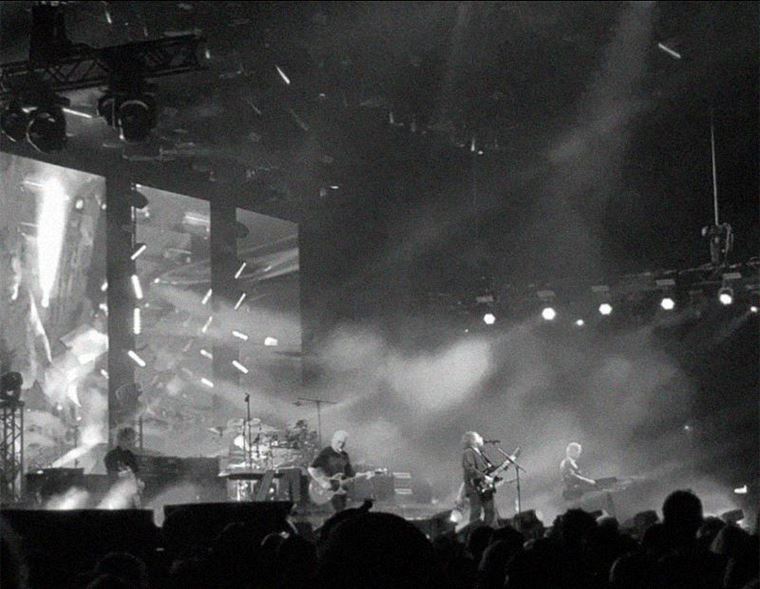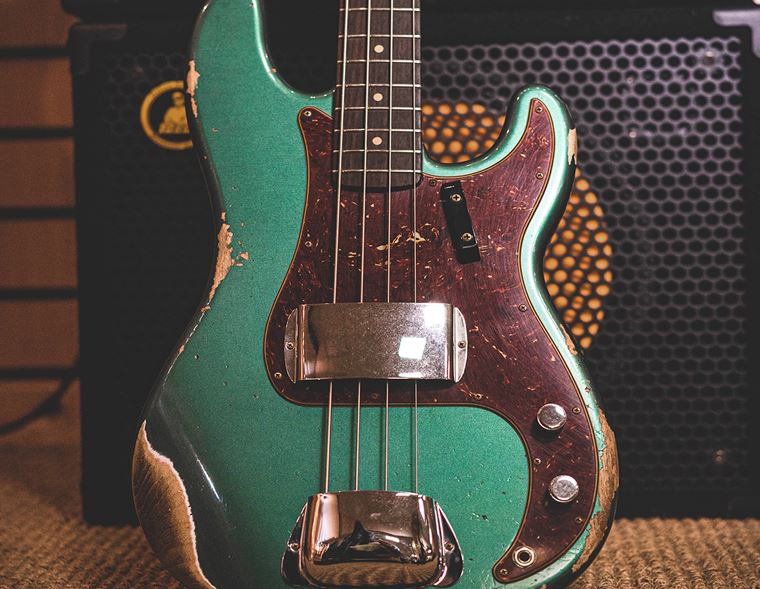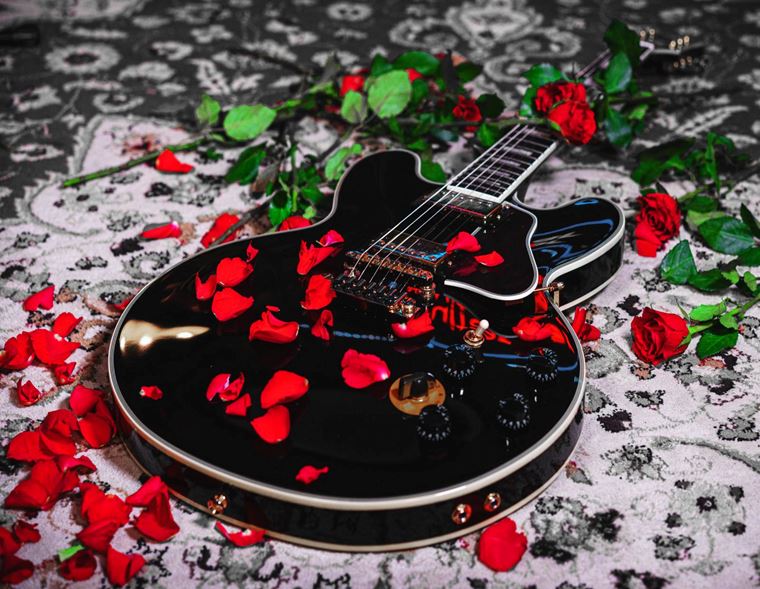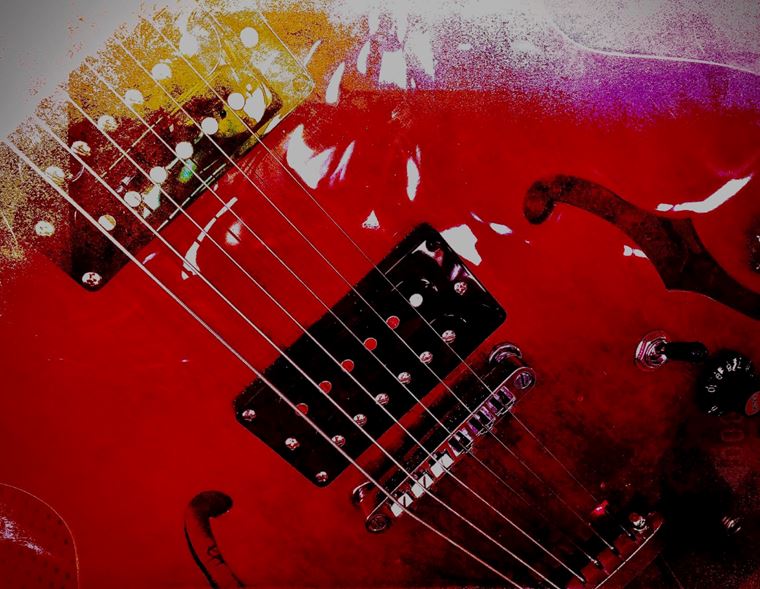Mark Knopfler's 5 Greatest Guitar Moments
Published on 27 November 2023
When it comes to tone, taste and emotion, Mark Knopfler is in a league of his own. The Tyneside rocker has charmed audiences for decades with his melodic playing, his wonderful phrasing and his impeccable tone. Whether he gives us a masterclass in Stratocaster dynamics, or zaps us with a ‘59 Les Paul set to stun, Knopfler is always on point. He’s a favourite player for music fans that span lots of genres, and he’s respected by all.
.jpg)
The Dire Straits frontman has also enjoyed a successful solo career, as well as nailing some classic movie scores, too. Some of this work is amongst his finest, so it’s worth investigating in addition to his more famous stuff.
Today, I want to celebrate Knopfler’s understated genius by pointing towards five of his greatest guitar moments. It’s likely that we’ll all be agreeing on most of these, but when was it ever a bad time to spend ten minutes with Mark?
Sultans of Swing
Every guitar plugin known to man has a ‘Sultans of Swing’ setting. Why? Well, if you’re not instantly going for the distortion, then Mark’s sound on this Dire Straits tune is pretty much exactly what you want to hear when you play a Strat: clean but expressive, cutting yet still warm.
As for the tune itself, it’s one of those easy-going classics that everybody likes without even having to consider.
Sultans of Swing is pretty much carried by Knopfler’s playing, which straddles that tricksy ground between understated and showy. A vintage Strat, a Fender amp and some sharply honed right hand fingers (no plectrum, remember) will get you started, then it’s all about creating some magic with feel, timing and phrasing.
Local Hero
Mark scored a few movies and for me, it was between The Princess Bride and this one, Local Hero, for inclusion today. Both have a rustic rurality to them, but for me, Local Hero just hits you in the emotions too hard to ignore.
The film is based in Scotland and Knopfler references the country with his almost celtic-sounding melody, but it’s that type of ‘celtic’ that’s universal. Much like the tone of the film, this music holds a lot of restraint, letting go a little just towards the end when our hero makes something of a triumphant return to the land he’s grown to love. Does anyone hear a phone ringing?
Romeo & Juliet
How many hit songs are based (loosely) on Shakespeare plays and feature a National resonator as a main instrument?
Knopfler’s heart-broken lament to lost love is several shades of lovely, and the National Style-O performance (in open G, if you’re trying to play along) somehow sounds like both a banjo and a piano at the same time.
There’s a very understated solo at the end too, which I think is a really nice example of Mark hovering around the spotlight instead of fully stepping into its glare. Tasteful? You bet, but massively effective too. Why are your eyes all wet, have you been chopping up onions too?
Brothers in Arms
Does this stoic ode to fallen soldiers contain Knopfler’s best ever playing? The restraint here is incredible: you can almost feel him wanting to add in more notes because his tone is sooo delicious (genuine 1959 Les Paul Standards sound amazing: who knew?), but he keeps it all in check, allowing the notes that he does let out do all of the talking.
It’s a mesmerising piece from a guitar point of view (those volume swell moments!), but it’s all still in service to a powerful, emotive song, and importantly, the playing all relates to - and helps support - the elegiac message of the song. Is this the difference between a very good player and a great one?
Money for Nothing
Brothers in Arms may well contain Mark’s playing (maybe it doesn’t? Do you prefer Private Investigations? I wouldn’t disagree there, either), but Money For Nothing is always the one you can’t wait to hear. In fact, I’ll go a little further and say that this tune is all about the first minute or two. That build up, with Sting signing away about his MTV in the background, the whole band making way for the triumphant entry of that vintage ‘59 Les Paul guitar again( or is it?). It’s the guitar hero moment we all want to experience in our lives, write large with a sound that is frankly unbeatable. The other musicians set up this part so well, that the triumph of the riff is spine-tingling.
Right, let’s talk about that sound. Yes, having that vintage ‘59 Les Paul would be nice, for sure, but that’s not what’s actually on this track! It makes a glorious appearance in the iconic video, but Mark’s actually playing a Les Paul Junior on this song, not the ‘59 at all.
There’s actually less going on there, gear-wise, than a lot of people like to say. For a start, there is no wah pedal at all: it’s the guitar into a Laney amp, and the sound is mainly the result of how the amp’s speaker was mic’d up. Sound on Sound had a huge article on it and you can find it online, but that’s the basics of it. Fingerstyle, of course, and little taps at the 5th fret when you’re muting the notes will give you those characteristic harmonics.
Here’s a little quote from that article, which features engineer Neil Dorfsman:
"I remember Mark's Les Paul Junior going through a Laney amp, and that was the sound of 'Money For Nothing'," says Dorfsman. "We were actually going for a sort of ZZ Top sound, but what we ended up getting was kind of an accident. Mark would be in the control room and we'd run a lead out to the main area, and I remember getting a channel set up to monitor, heading out to the room to move the mics around, and Mark's guitar tech Ron Eve getting on the talkback and telling me not to touch anything because it sounded amazing as it was.”
Tone, Taste & Timing
When it comes to Mark Knopfler, I think three ‘T’s’ are appropriate: Tone, Taste and Timing. Now, he obviously has some scandalously expensive gear, but look at what we just learned: that immortal Money For Nothing sound was a Les Paul Junior into a Laney. Good gear but hardly museum piece relics: this is stuff that is within the reach of us all.
Taste for me is in his economy of notes, his melodic sensibility and his straddling of that flashy/understated line, one which we guitarists are generally not good at walking!
Timing is perhaps more an extension of Taste here: it's about when he chooses to play, and when he chooses not to. I’d never call Knopfler a minimalist, but he is economical with this playing and he rarely overplays. The ‘solo’ on Romeo & Juliet is a great example, as is the entire lack of a solo on Money for Nothing, one of the world’s most unabashed ‘guitar hero’ tunes.
Those are the things I’ve taken from Mark Knopfler’s finest moments. What about you?












